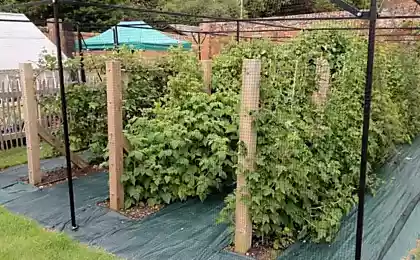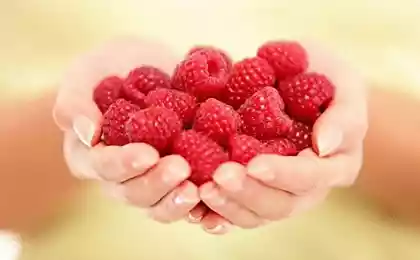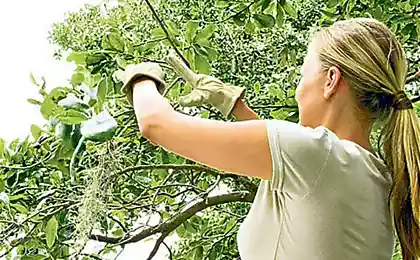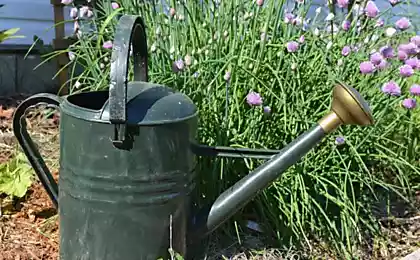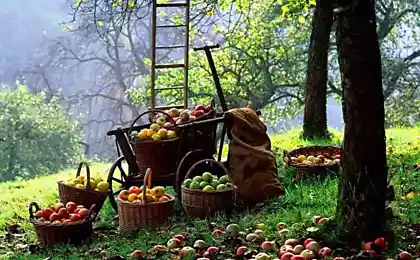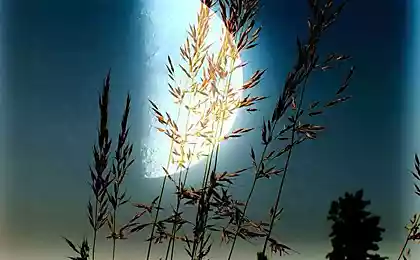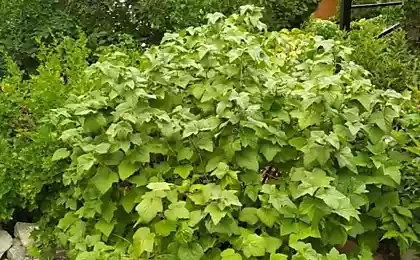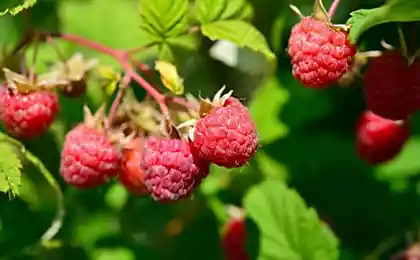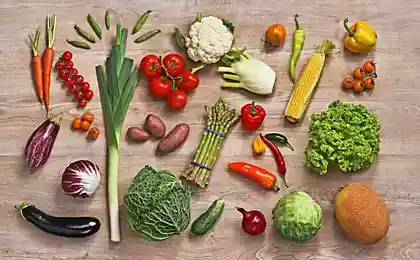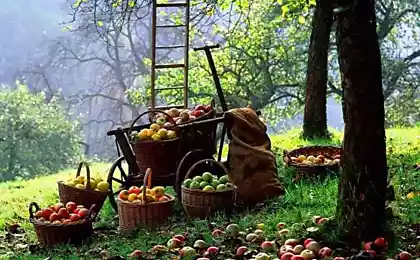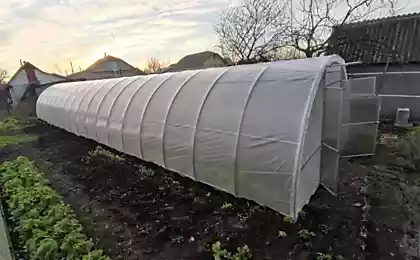412
Without prejudice to the harvest to rejuvenate the raspberry bushes
Tips from an experienced gardener gift! Advice is not easy! And very valuable! Won't know what to do with raspberries! Not kidding!
• Typically, gardeners grow raspberries in one place not more than 10 years. The time period of 15 — 18 years can be considered marginal, especially if you do not give proper attention to the maintenance of soil fertility.
• By this time, the productivity of plantations drastically reduced due to the exhaustion of the soil and aging of the rhizome. The plants are susceptible to diseases and pests, begin to suffer in the winter from low temperatures. As a result, the roots and rhizome breaks down the process of laying the kidneys, which develop the suckers and shoots of substitution.
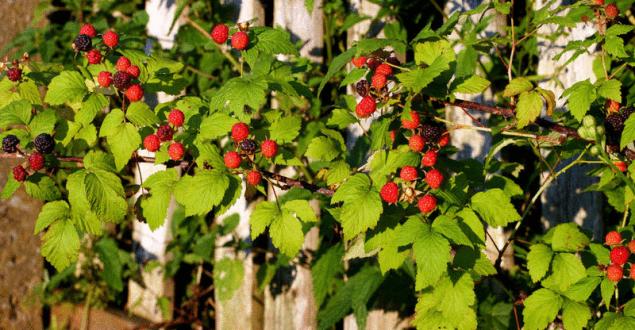
• But in community gardens, especially among older growers, quite often the situation arises when the owner of the site would like to rejuvenate the raspberry bushes, but he wants to keep only one variety that was grown 15 – 20 years.
Is it possible to find a way out of this situation without destroying the existing old raspberry canes?
• Yes, applying certain techniques, if necessary, to significantly extend the life of raspberry bushes.
This is most easily done by swiping in mid-September or spring partial rejuvenation of raspberry bushes, selectively removing the weakest bushes along with rhizome.
• For this next to the bad bushes on all sides will Zaglebie shovel the full depth at a slight angle towards the Bush.
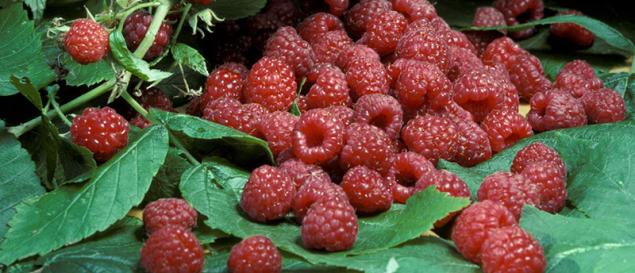
When major roots are cut, the old Bush with the rhizome should be removed from the soil. More good bushes should be temporarily saved, so that next year will not remain without berries. All this work should be carried out very carefully so as not to damage root suckers, since that's the whole point of this work.
• The resulting pits fill with rotted compost or humus and pour.
And in the spring, the entire area of raspberry bushes we have to make a complete fertilizer and gently press it into the soil a light rake.The following year, the fruiting will occur from root suckers, and a few in the side of the treated soil will grow new shoots with young rootstocks and own roots. And the following year on young rhizomes will grow full shoots of substitution.
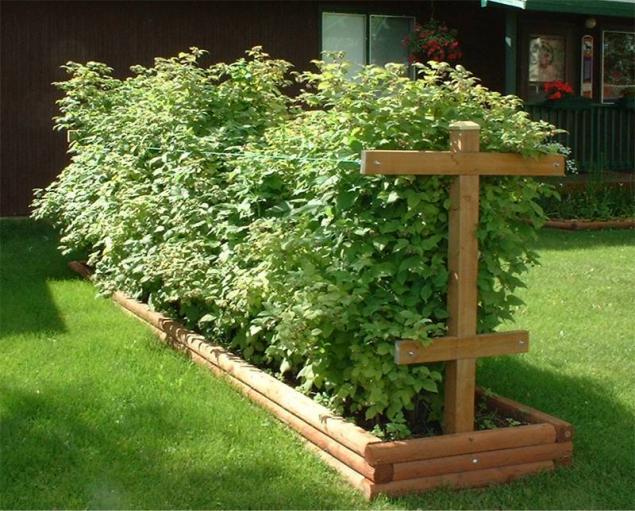
• Next fall again choose and remove some old bushes from the rhizome.
At the same time for 3-4 years, the number of moves from the original place of planting in the direction of 40-50 And see if there is a need to bring it back to the old place, then the raspberries are beginning to shift in the opposite direction. So for several years, you can completely rejuvenate and heal your plantation of raspberry, almost without stopping berry.
• And if you're a 4-year cycle of rejuvenation of the plantation of raspberries will be carried out regularly, your raspberry patch will constantly "wander" and to pamper you with a rich harvest for many, many years. published
Author: Valery Shafranski
Source: www.liveinternet.ru/users/galimax/post269745954/
• Typically, gardeners grow raspberries in one place not more than 10 years. The time period of 15 — 18 years can be considered marginal, especially if you do not give proper attention to the maintenance of soil fertility.
• By this time, the productivity of plantations drastically reduced due to the exhaustion of the soil and aging of the rhizome. The plants are susceptible to diseases and pests, begin to suffer in the winter from low temperatures. As a result, the roots and rhizome breaks down the process of laying the kidneys, which develop the suckers and shoots of substitution.

• But in community gardens, especially among older growers, quite often the situation arises when the owner of the site would like to rejuvenate the raspberry bushes, but he wants to keep only one variety that was grown 15 – 20 years.
Is it possible to find a way out of this situation without destroying the existing old raspberry canes?
• Yes, applying certain techniques, if necessary, to significantly extend the life of raspberry bushes.
This is most easily done by swiping in mid-September or spring partial rejuvenation of raspberry bushes, selectively removing the weakest bushes along with rhizome.
• For this next to the bad bushes on all sides will Zaglebie shovel the full depth at a slight angle towards the Bush.

When major roots are cut, the old Bush with the rhizome should be removed from the soil. More good bushes should be temporarily saved, so that next year will not remain without berries. All this work should be carried out very carefully so as not to damage root suckers, since that's the whole point of this work.
• The resulting pits fill with rotted compost or humus and pour.
And in the spring, the entire area of raspberry bushes we have to make a complete fertilizer and gently press it into the soil a light rake.The following year, the fruiting will occur from root suckers, and a few in the side of the treated soil will grow new shoots with young rootstocks and own roots. And the following year on young rhizomes will grow full shoots of substitution.

• Next fall again choose and remove some old bushes from the rhizome.
At the same time for 3-4 years, the number of moves from the original place of planting in the direction of 40-50 And see if there is a need to bring it back to the old place, then the raspberries are beginning to shift in the opposite direction. So for several years, you can completely rejuvenate and heal your plantation of raspberry, almost without stopping berry.
• And if you're a 4-year cycle of rejuvenation of the plantation of raspberries will be carried out regularly, your raspberry patch will constantly "wander" and to pamper you with a rich harvest for many, many years. published
Author: Valery Shafranski
Source: www.liveinternet.ru/users/galimax/post269745954/



